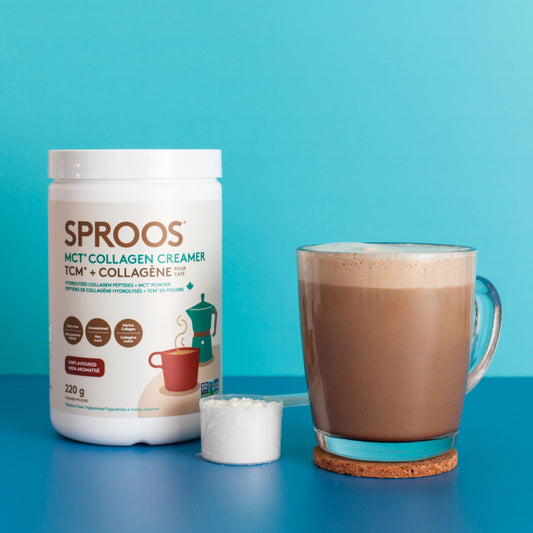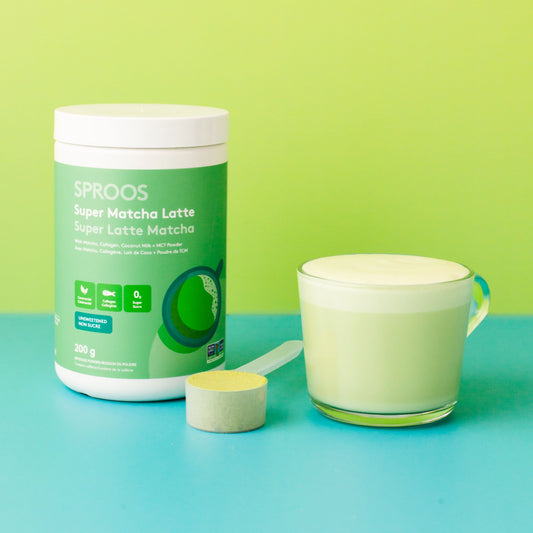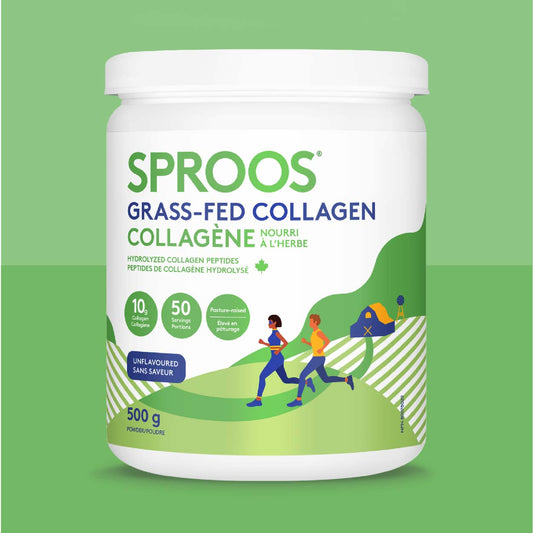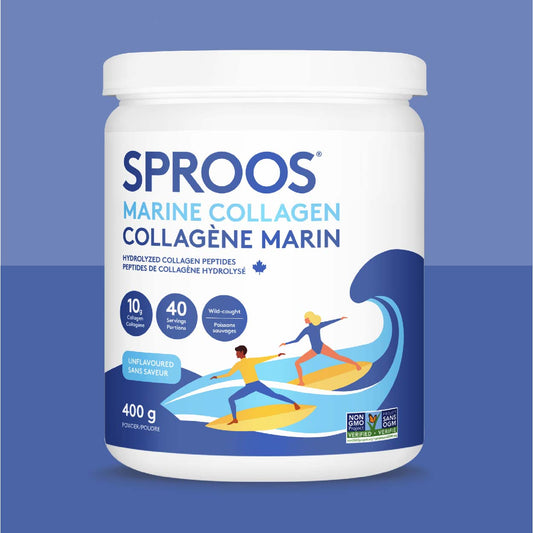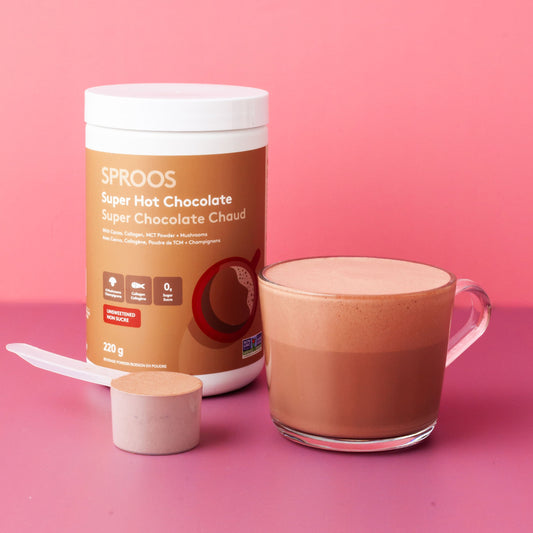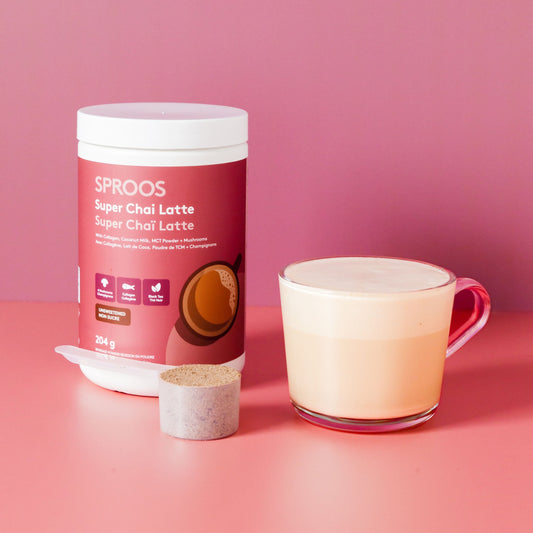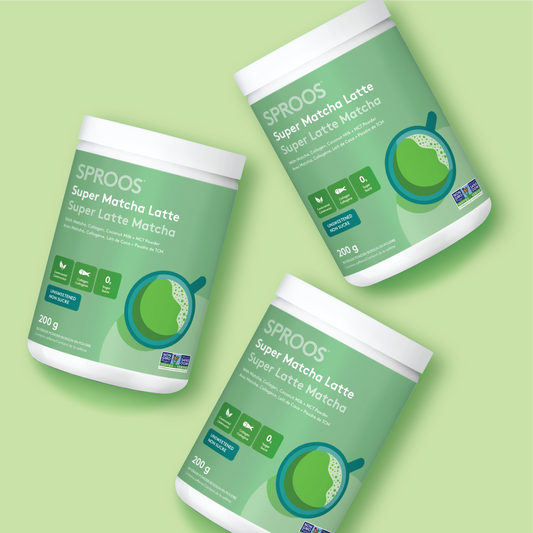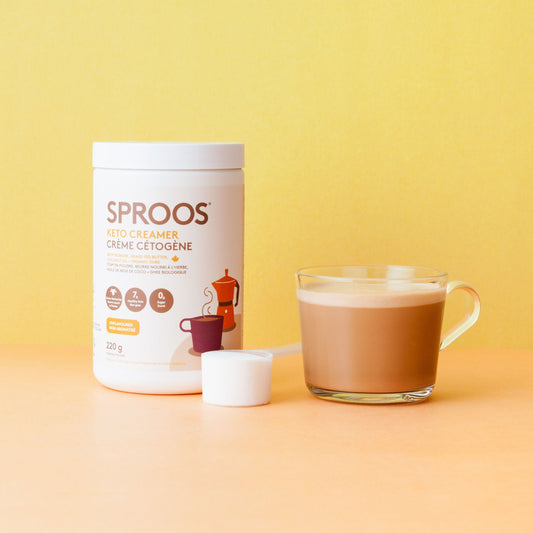Quand il s'agit de la santé de notre intestin, l'équilibre est la clé. Des années d'aliments transformés, de stress et quelques (centaines) de nuits tardives finiront par dévaster notre précieux microbiote intestinal. Ce petit écosystème est un endroit où le bon équilibre des bactéries se traduit par un aspect et un sentiment fantastiques. Mais si les ballonnements, la prise de poids et cette sensation de brouillard étouffent votre capacité à écouter votre « instinct intestinal », il est temps de prendre votre santé intestinale au sérieux.
Une petite zone avec un grand impact
Une mauvaise santé intestinale a été liée à une large gamme de symptômes. Notre santé physique et notre humeur peuvent toutes deux chuter lorsque les choses sont déséquilibrées. Parfois appelé notre « second cerveau », une mauvaise santé intestinale a été associée à l'anxiété, la dépression, la prise de poids, les ballonnements, la tête brouillée – et un déséquilibre à long terme peut sérieusement menacer notre qualité de vie.
Comment cela se produit
En ce qui concerne l'intestin, la perméabilité est le facteur principal. Un intestin sain possède une muqueuse protectrice qui est imperméable, ou scellée. Les particules alimentaires y sont décomposées et passent rapidement dans le tractus intestinal où notre corps en fait bon usage. Si la muqueuse intestinale a été endommagée par un déséquilibre bactérien (pensez à une utilisation prolongée d'antibiotiques), le stress, le manque de sommeil réparateur ou une nuit de trop dans ces complexes tout compris (blâmez le buffet !) – nous pouvons développer un « intestin perméable », ce qui est une façon peu élégante de décrire une situation où la muqueuse de notre intestin a été endommagée et est maintenant perméable.
Avec un intestin perméable, les particules alimentaires, bactéries et agents pathogènes peuvent soudainement traverser la muqueuse intestinale auparavant scellée et entrer dans notre circulation sanguine. Lorsque ces particules non digérées atteignent notre système, cela déclenche une réponse immunitaire appelée inflammation, qui est la cause principale d'une multitude de problèmes.
Guérir et sceller
L'objectif ultime pour améliorer la santé intestinale est de
guérir et sceller l'intestin. En guérissant la muqueuse intestinale, l'imperméabilité est restaurée, la nourriture est digérée comme il se doit et la muqueuse est scellée. Le corps ne travaille plus en surchauffe pour freiner l'inflammation et votre système immunitaire bénéficie d'une pause bien méritée. Tout se calme enfin et vous commencez à remarquer cet équilibre dans votre apparence et votre ressenti.
Quel rapport avec le collagène ?
Le collagène est un composant essentiel pour
guérir et sceller l'intestin. Le collagène est désormais reconnu comme l'un des suppléments clés pour la santé intestinale. En plus de fournir les éléments constitutifs pour la production de nouveau collagène dans le corps, les acides aminés apportés par le collagène hydrolysé
soutiennent la santé intestinale. Par exemple, le glutamate et l'arginine, et possiblement la méthionine, la cystéine et la thréonine optimisent les fonctions immunitaires de l'intestin. Ils aident également à maintenir l'intégrité, la croissance et la fonction de l'intestin. Les acides aminés méthionine, thréonine, arginine, sérine et proline soutiennent tous la guérison de la muqueuse intestinale. Et n'oublions pas la glycine, qui a démontré sa capacité à réduire l'inflammation.
À mesure que nos niveaux de collagène diminuent, notre santé intestinale décline aussi
Comme tant de bonnes choses, la production naturelle de collagène de notre corps atteint son pic au début de la vingtaine et décline lentement avec l'âge, d'environ 1,5 % par an, pour être précis. Nous pouvons freiner ce déclin naturel en consommant du collagène hydrolysé. De courtes chaînes d'acides aminés, appelées peptides, ainsi que des acides aminés libres, sont les éléments nécessaires pour fabriquer du nouveau collagène. En supplémentant quotidiennement, vous restaurez efficacement les niveaux de collagène dans votre corps, ce qui est
une bonne nouvelle pour la santé intestinale.
Qu'est-ce que le collagène exactement ?
Le collagène est une protéine composée de longues chaînes d'acides aminés liés. C'est en fait la source de protéine la plus abondante dans tout notre corps. Vous pouvez considérer le collagène comme un élément fondamental, fournissant force et structure à nos tissus conjonctifs. Ce qui signifie qu'il est essentiel pour un intestin sain. En fait, le collagène d'origine marine a démontré être le plus efficace pour la santé intestinale7.
Les types clés – 1, 2 et 3
Il existe 28 types de collagène. Parmi eux, ce sont
les types 1, 2 et 3 qui représentent
80-90% de toutes les protéines de collagène dans le corps. Ces trois types jouent un rôle structurel important et sont essentiels pour maintenir la force et l'élasticité des tissus. C'est principalement
le type 3 qui contribue à
l'intégrité de la muqueuse intestinale.


